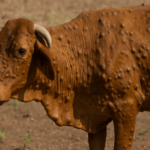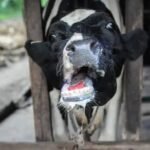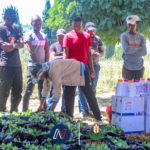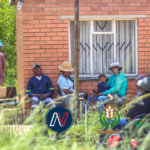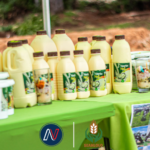…As USDA cancels the USD13.4 STEPS project
A sudden and unexpected decision by the United States Department of Agriculture (USDA) to cancel all existing grants under its Food for Progress program has directly hit the heart of ambitious Sustainable Transformation of Enterprises in the Poultry Sector (STEPS) project, leaving Lesotho’s food security and the livelihoods of countless local farmers in jeopardy.
For a country like Lesotho, heavily reliant on imported poultry products, with over 80 percent of its poultry meat reported to have been sourced from neighbouring countries in 2021, with a staggering USD39 million (M700 million) expenditure, the STEPS project was more than just an aid program; it was a beacon of hope for poultry farmers and the country.
With a five-year operational budget of USD13.4 million (M240 million), the USDA-funded initiative, set to run until September 2028, was aimed to create a self-sufficient and thriving poultry industry in Lesotho.
“We were finally seeing a path to reduce our dependency on external markets,” commented a local agricultural expert, who wished to remain anonymous due to the sensitivity of the situation.
The expert added, “The STEPS project was designed to tackle the very core issues plaguing our poultry sector, from the lack of parent stock and poor production practices, to limited access to financing and inadequate quality standards. This sudden cut is a devastating blow both to farmers and the country at large.”
“The objectives of STEPS were clear and critical for Lesotho’s economic and nutritional well-being because it was aimed to significantly increase the agricultural productivity of both dual-purpose and single-purpose poultry,” the expert added, noting the activities involved improving producer access to essential inputs, crucial services, vital finance, and critical end-market linkages.
According to the Marketing Department of the Ministry of Agriculture, Food Security, and Nutrition, Lesotho imported five million chickens from South Africa in 2024 alone, with additional over six million other chicken products, including offal imported to supplement the local shortfall.
These figures highlight the country’s heavy reliance on imports, raising concerns about the sustainability of its poultry sector.
Implemented by Land O’Lakes Venture37 in partnership with the International Livestock Research Institute (ILRI), Lesotho’s Rural Self-Help Development Association (RSDA), and World Poultry Foundation (WPF), the STEPS project was meant to transform Lesotho’s poultry sector through private sector enhancements that would boost markets in Lesotho’s poultry sector.
The project concept note indicated that there are two broad market categories of poultry being products derived from dual-purpose chickens and from commercial single-purpose chickens.
Dual-purpose chickens are hardy, but slow growing, while single-purpose chickens are extremely efficient, but require more maintenance, the concept note explained adding that most imports and poultry sold in Lesotho’s formal markets are single-purpose chickens.
STEPS sought to catalyse the expansion of local trade in agricultural products, specifically poultry inputs, services, live poultry, eggs and processed meat and egg products.
This was to be achieved by improving enterprise access to finance, quality inputs, and consistent end markets, fostering a more robust domestic economy.
Implemented in 7 districts of Maseru, Berea, Leribe, Butha-Buthe, Mafeteng, Mohale’s Hoek, and Quthing, the project was not just about handouts, it was about building sustainable systems.
According to expectations, by the end of the project, STEPS would have “enhanced the profitability of 35,000 value chain actors and increase meat and egg production by up to 40 and 30 percent, respectively. Ultimately, these changes will boost food security and poultry markets in Lesotho.”
Activities of the project included extensive market assessments, specialised technical assistance, curriculum development, and training in improved practices and quality standards.
The cancellation, which aligns with previous U.S. budget proposals targeting foreign food aid, leaves Lesotho’s poultry sector in a precarious position.
“Commodities for projects scheduled for 2024 are reportedly still en route, adding to the confusion and logistical nightmare,” the expert revealed.
While the USDA has remained silent on the matter, the aftershocks are deeply felt on the ground in Lesotho.
The promise of a self-sufficient poultry industry, providing affordable protein for its citizens and economic opportunities for its farmers, now hangs by a thread.
The abrupt withdrawal of critical funding from STEPS is a stark reminder of how global policy decisions can have profound and immediate consequences on the livelihoods and food security of nations far beyond their borders, a cam as a shock to the Lesotho implementing RSDA.
The Managing Director for Rural Self-Help Development Association (RSDA), Mampho Thulo, while still stunned of the cancellation, assured farmers that the association would continue with its work even without their main funder.
“Since we have an active partnership with the American company engaged to implement the project, that relationship will not end, it is just that we will not have money to implement the project, but with the little that we have we will continue our work,” she said.
She indicated that, as a result of the funding cut, there are some people who are going to lose their jobs, including extension officers who were based in seven districts of Lesotho under the project.
Thulo indicated that indeed the funding cut would impact their work negatively as well as the poultry industry at the national level, because the project was aimed at supporting aspects including the development of the policy specifically for the poultry industry.
The Minister of Agriculture, Food Security and Nutrition, Thabo Mofosi, allayed the fears of the farmers, saying as the ministry they are following up on projects that are being cut by the US saying the cabinet would convene over the issues to see what can be done to help affected projects.
He disclosed that it is not only one project cut in terms of funds, hence the ministry is keeping watch and noting projects that are affected.
“After realising which projects are affected, the cabinet will convene to talk about how we can help them continue. They will be selected in terms of importance and they will be given priority as such,” the minister he said, adding that, since the STEPS project included the aspect of policy development for the poultry industry, that only requires urgent attention as the industry cannot be run without a policy.
“We are currently not only looking to have policy on poultry but we are also in the process of establishing the Animal Health Production Welfare Act which is going to regulate imports and exports products. Our aim is that this year ends with such laws being available,” he said.

